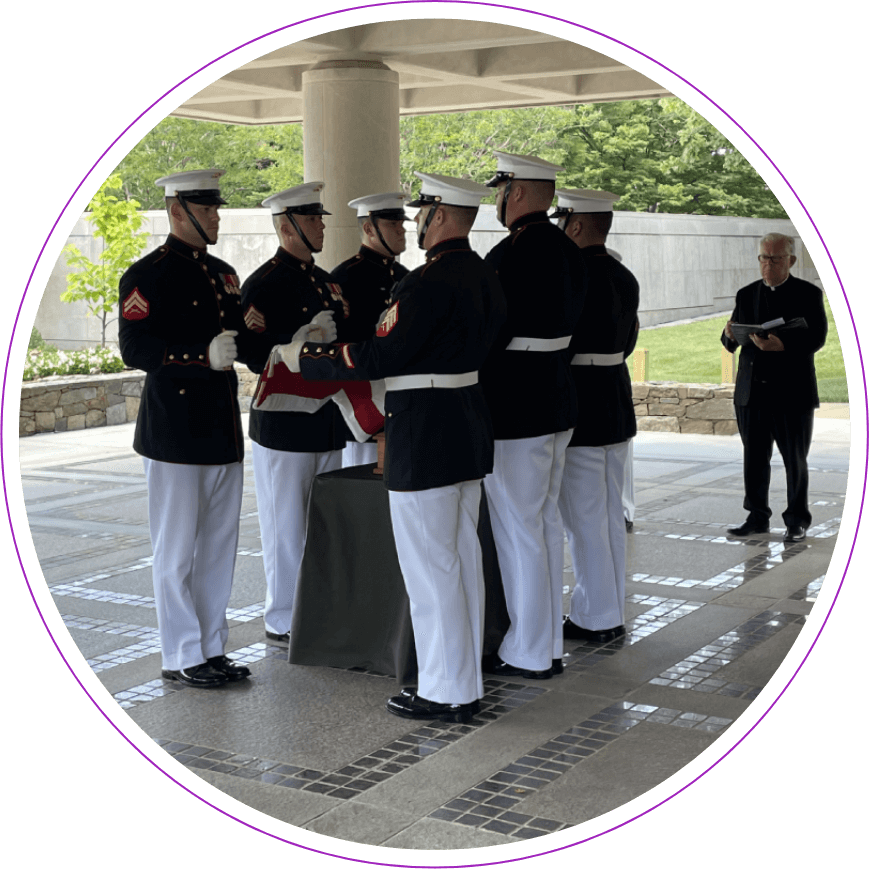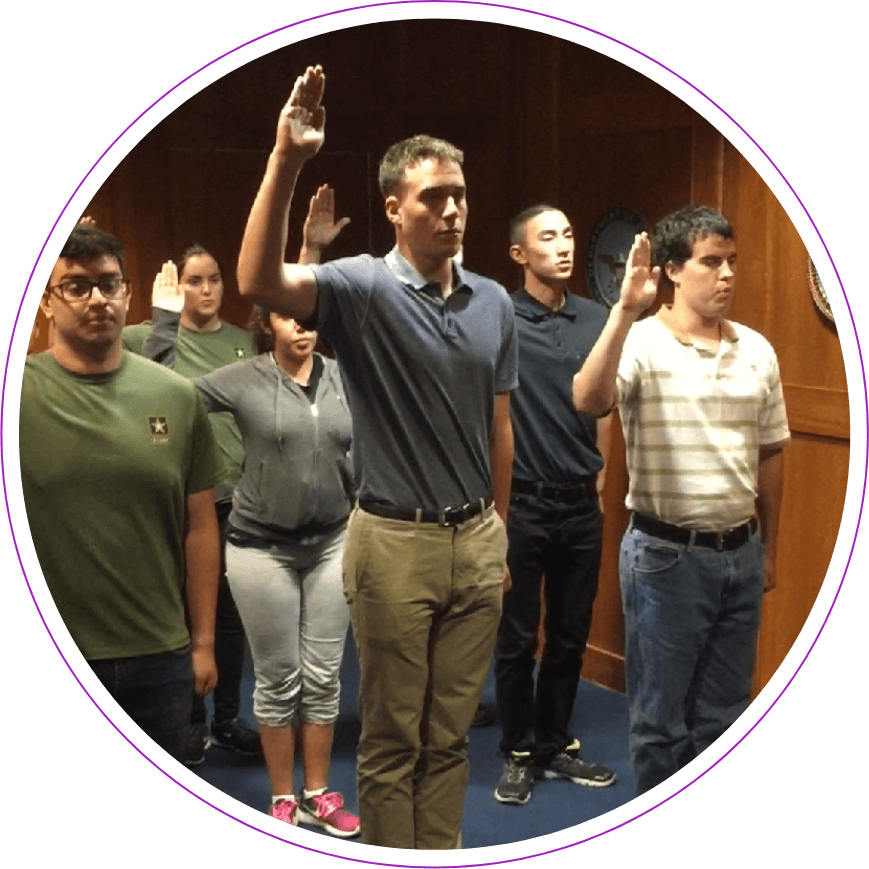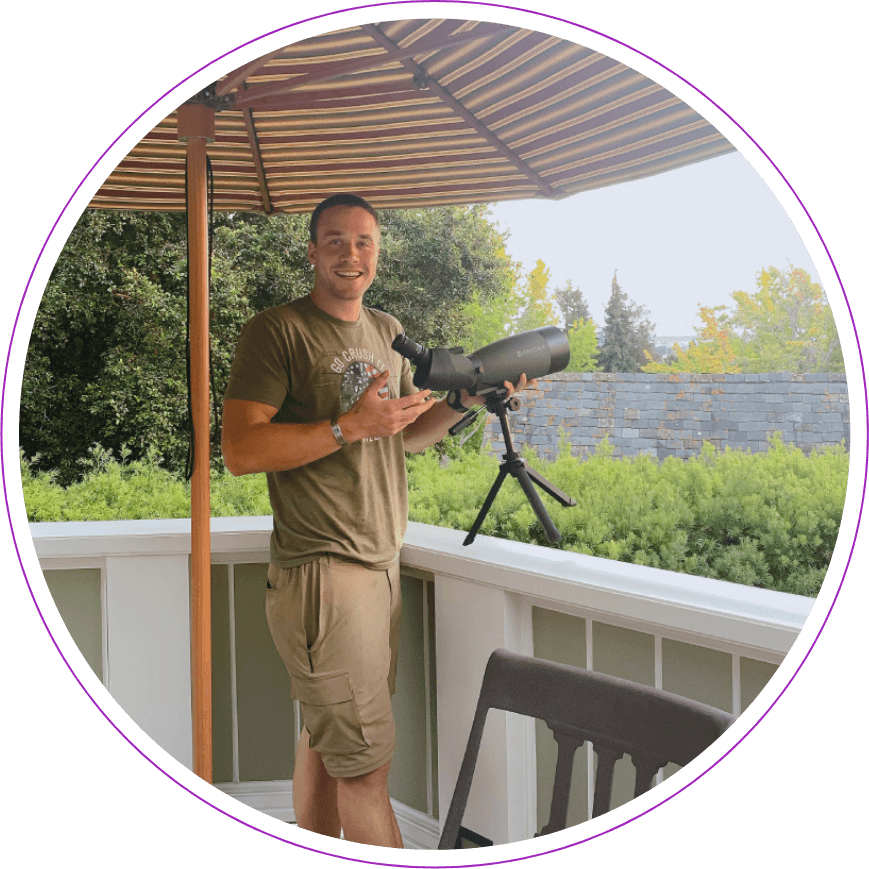
Mitch’s Story
Mitch Winters was born on April 12, 1998: an Easter Sunday. From the age of 8, all he ever wanted to do was serve this country, first in the United States Marine Corps and then as a police officer. He achieved both of those dreams—after starting early in his life working toward them.
While attending public schools, he developed a deep love for the Boy Scouts of America’s youth programs of character development and values-based leadership training. Mitch achieved various leadership positions, including as the Troop Representative to the Order of the Arrow. He also graduated from the Boy Scouts of America’s National Youth Leadership Training program and thereafter served on the Staff and as a Team Guide for that program.
Ultimately, he earned the rank of Eagle Scout. His Eagle Scout project was informed and inspired by contact with the Oakland Police Department’s K-9 training facility; Mitch had seen the training officers eating lunch without a place to sit. So he built and installed a picnic table and benches for them. As one of his troop leaders wrote, “he was a significant role model for many scouts.”
Mitch was also part of his hometown Police Department’s Police Explorer’s Program, devoting approximately 350 hours per year to it. He helped with crowd and traffic safety at beloved town events like the Fourth of July parade and the town’s annual 5K run. Ultimately Mitch’s Explorers peers selected him as their Sergeant.
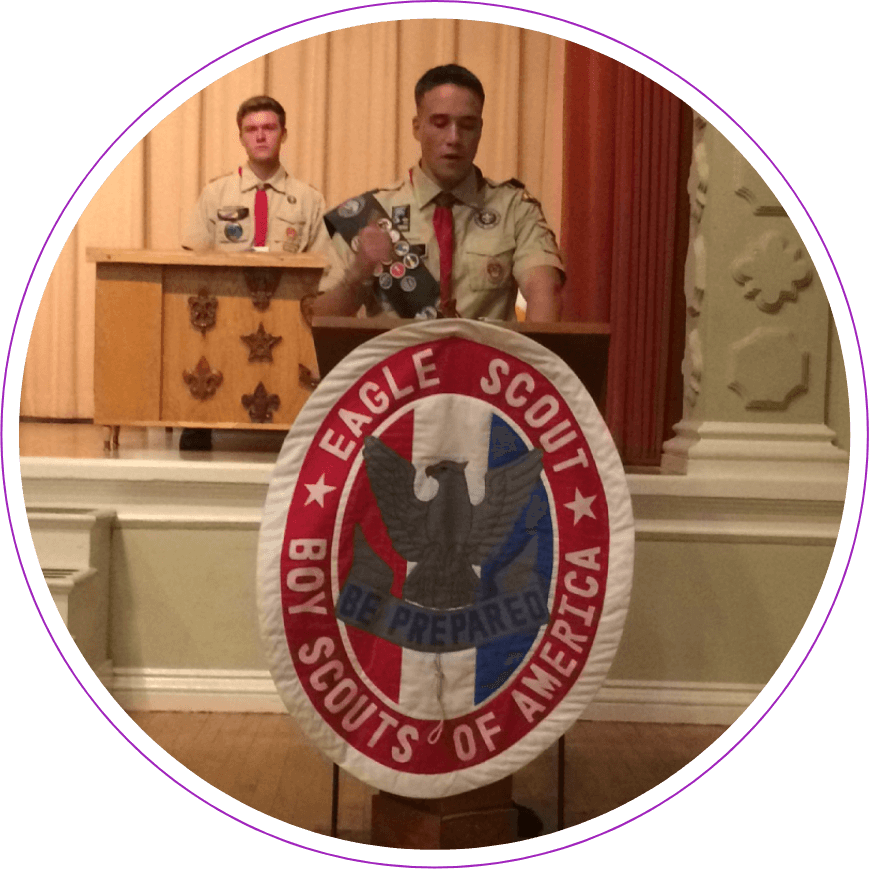
Mitch earned admission to The Citadel. He turned it down because he wanted to start serving his country right away. With his parents’ permission, while still in high school, Mitch committed to the United States Marine Corps as an Infantryman. Mitch rigorously prepared himself for the Corps. He swam laps for an hour a day while holding a 35-pound weight out of the water; he also used to tread water, holding that same weight out of the water.
He ran for miles, including running up steep local hills. He often ran while oxygen-deprived, wearing a WWII gas mask he purchased at a local Army surplus store, and while also weighed down with a rucksack filled with weights. Two days after graduating from high school, he boarded an overnight bus to boot camp.
In the Corps, he was deployed overseas for eight months, earned a meritorious promotion, won a National Defense Medal, was an Infantry Squad Leader, a Combat Marksmanship Coach, and a graduate of the brutal Marine Corps Water Survival School. That’s him to the right, at that school. For his service in the Marines, Mitch earned a National Defense Medal, a Global War on Terrorism Service Medal, a Sea Service Medal, and a Good Conduct Medal. With typical humility, Mitch didn’t tell us about them when he was alive. We learned about them after he died; he had kept them in a box in his closet, buried beneath a bunch of sweatshirts.
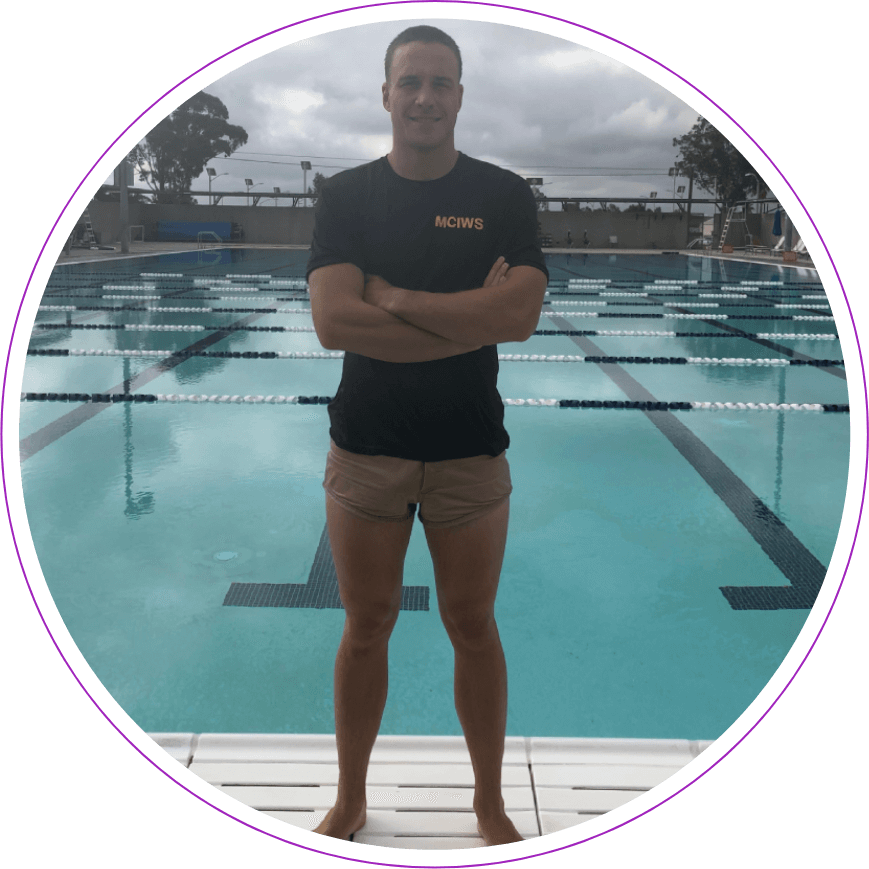

In June 2021, he graduated from the Mesa Arizona Police Academy, full of joy, hope, and optimism—his natural state. That was the day that his mom, Kathleen, pinned Mitch’s Mesa Police Officer Badge No. 767 to his chest—thereby becoming a police officer. What a wonderful moment, and what a precious memory. He was so looking forward to being, as he put it, “out on the street.”
As Phase 1 of a four-phase field training program, he was assigned to “Central Graves” — Central Mesa, the graveyard shift. Mesa is afflicted by the high crime rates that its two principal national gangs, MS-13 and the Aryan Brotherhood, inflict on it. Mitch was assigned a Field Training Officer (“FTO”) nicknamed “The Hunter”—someone who would proactively look for gang activity and get those gang members off the street.
Mitch loved it. He thrived on it. He called us each week, in calls that would last an hour or more, to share with us stories of the arrests that he had helped and the events on his shift. He loved Central Graves, and he admired and respected The Hunter. He could not wait to finish his field training program so that he could get “out on the street.” And he loved his adopted home state of Arizona.
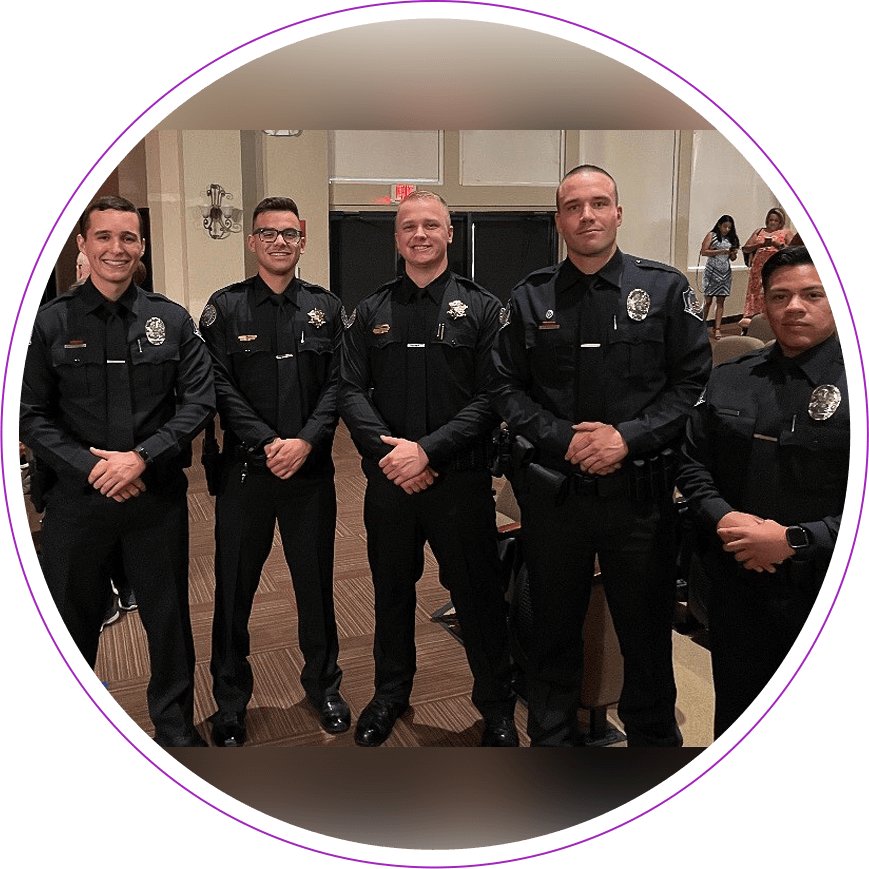
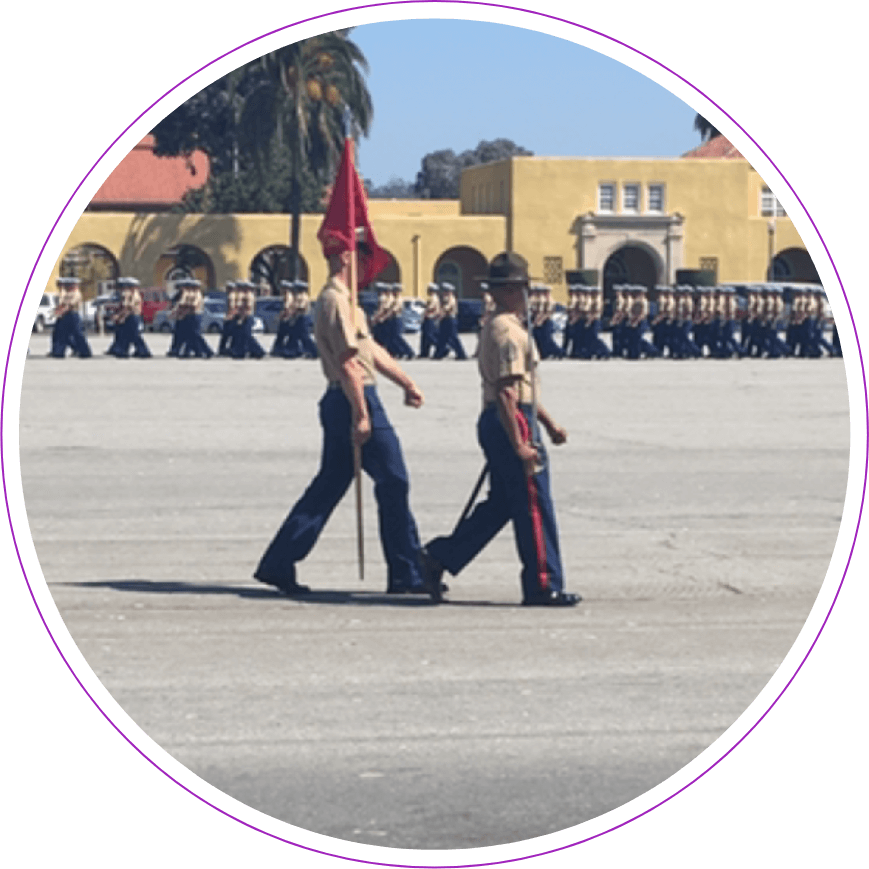
How did a young man of such promise, achievement, and optimism end up as a suicide victim? In short, the arc of Mitch’s life tragically and fatally reversed course in Phase 2 of his FTO program.
On Friday, November 12, 2021—a date his family will never be able to forget, a date that will always be twenty-four hours of the blackest night—Mitch walked into his apartment bedroom, lay down on his bed, and put a large-caliber bullet through his brain. The damage was such that the coroner refused to let Mitch’s father see his body.
Dozens of his former Marine buddies have reached out to us to convey their sorrow and share in our grief. To a person, they have told us that they loved Mitch. That he was a “great man”—although, being Marines, they salt up the language. That he was a “natural leader” who “trained us well” and who “made us want to stand a little taller and straighter.” although it wasn’t his job to do so, Mitch was always making time to help his fellow Marines with their troubles and struggles, whether those were large or small. Suffice it to say that Mitch was the last person who we, or anyone who loved him, thought could possibly fall victim to suicide.
He’s buried at Arlington National Cemetery, surrounded by others who also put service to their country above all else.
